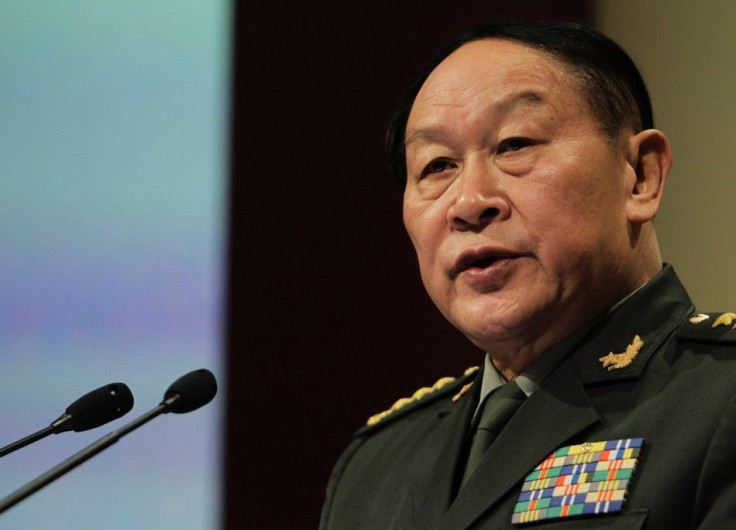Chinese Minister Of Defense To Visit US For First Time In Nine Years

On Friday, Liang Guanglie, China's Minister of Defense, arrives to spend a week in the U.S. in response to an invitation from Defense Secretary Leon Panetta. Liang will be visiting some of the country's most important military institutions and will meet with top U.S. military leaders.
This would be the first visit by a Chinese Defense Minister to the U.S. in nine years, and Liang's second ever trip to the U.S. His first occurred 8 years ago when he was serving as Chief of General Staff of the People's Liberation Army, the official name of China's military forces.
Trust-building between the two powers is at the center of current debates between the U.S. and China.
While the attention of the international media has been focused on the U.S.-China Strategic and Economic Dialogue in Beijing -- meant to build understanding between the foreign policy and economic branches of the two governments -- behind-the-scenes bilateral ties are also deepening between the two militaries.
Defense analysts in China and the U.S. widely believe the visit by Liang is a reciprocation of former Defense Secretary Robert Gates' trip to China in January 2011. On the prior occasion, China allowed Gates into the headquarters of its Second Artillery, the military department in charge of the country's strategic forces -- its nuclear arms and ballistic missiles.
Not to be outdone, Panetta will play host to Liang at major U.S. military bases and the centers of America's military traditions, including the naval base at San Diego and West Point Academy.
Liang stressed mutual respect and a win-win attitude between the two countries, an approach China has championed in order to argue that gains for one country do not have to come at the expense of the other.
But defense analysts point out that sustained military exchanges between the two remain precarious. China has been incensed in past years by U.S. arms sales to Taiwan, which it believes is a part of its inviolable sovereign territory.
At the end of the Chinese Civil War in 1949, the Republic of China government, dominated by the Guomindang / Nationalist Party, fled to Taiwan while the Communist Party established the People's Republic of China on the mainland. Both governments have historically claimed that they were the sole legitimate government of China, but since the 1990s, a strong independence movement has become more influential in Taiwanese politics.
The People's Republic has resisted moves on the island to officially declare independence from the mainland, reserving the right to use force if necessary to prevent that from happening. Beijing has called U.S. arms sales and support for the Taipei interference and meddling in China's internal affairs. The Taiwanese government has criticized the U.S. for not doing more to provide the weapons it needs to defend itself from the mainland, which now spends more than $100 billion a year on its military.
In 2010 the U.S. approved an arms package worth $6.4 billion; in 2011 it sold $5.8 billion worth of arms to the island government. The two deals included Black Hawk helicopters, missiles, mine-hunting naval vessels, and upgrades for jet fighters. However, the recent exports did not include newer sophisticated F-16 C/D jet fighters, which Taiwan has requested since 2006.
U.S. supporters of selling the island new jets say they are badly needed to help offset the advantages of the Chinese military. On April 27, the White House said it was well aware of Taiwan's air force deficiencies and committed to assisting Taiwan in addressing the disparity in numbers of aircraft through our work with Taiwan's defense ministry.
Pressured from Congress, the Obama White House announced in May 2012 that it was in serious consideration of including the advanced jet in this year's package.
Whether that is simply lip-service paid during an election year, as Republican candidates blast the President for being soft on China, is anyone's guess. In the past, China has cut bilateral military ties as a signal of displeasure over U.S. arms support for the island.
© Copyright IBTimes 2024. All rights reserved.





















